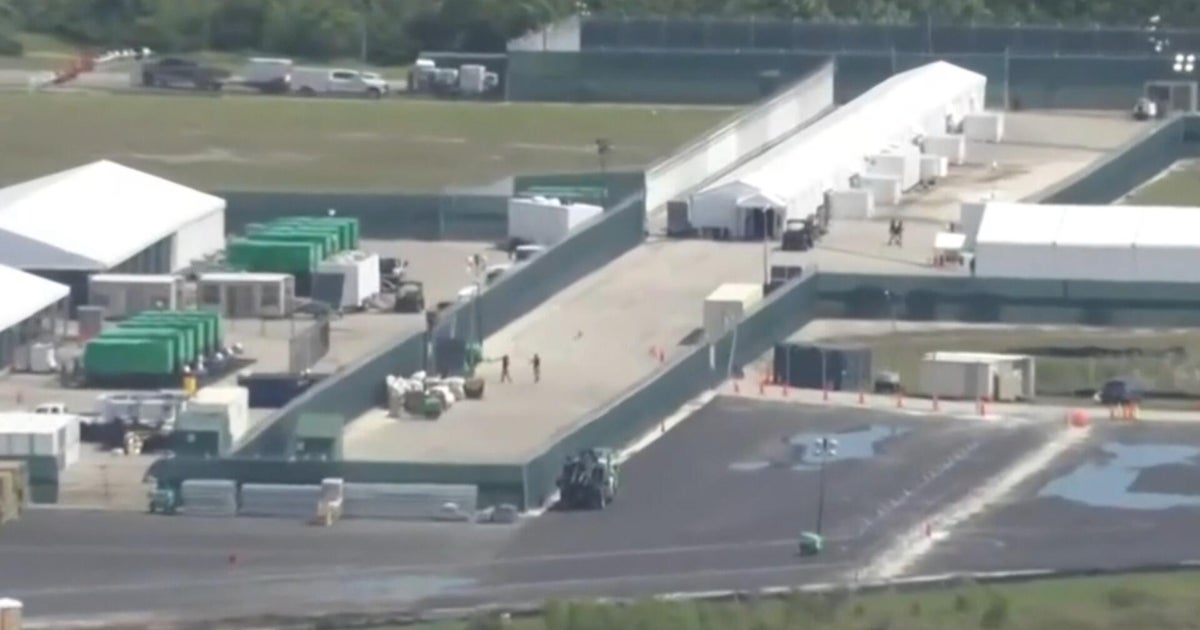In a landmark decision on Thursday, U.S. District Court Judge Kathleen Williams issued an indefinite halt to the expansion of a controversial immigration detention facility in Florida, known colloquially as “Alligator Alcatraz.” The judge’s ruling also prohibits the transfer of additional detainees to the already contentious site, marking a significant victory for environmental groups and local tribes who have raised concerns about the facility’s impact on the surrounding Everglades ecosystem.
The term “Alligator Alcatraz” was coined to underscore the isolation and harsh conditions of the detention center, located on what was previously a largely deserted airfield. The facility’s expansion is part of Florida’s efforts under its Republican leadership to support the stringent immigration policies of the Trump administration. These policies have included initiatives such as deputizing state police officers as federal immigration agents.
Judge Williams’ order stipulates that while the state can continue to use existing structures at the site to house immigrants suspected of illegal entry into the U.S., it cannot erect new buildings or accommodate more detainees. Moreover, the ruling prevents any construction activities such as the addition of tents, paving, or excavating at the site, although maintenance of current facilities for safety purposes is allowed.
Further directives from the court included the removal of temporary fencing, lighting fixtures, and generators within a 60-day window, although existing housing structures are permitted to remain. This balance seeks to maintain the site’s basic functionality without enabling its expansion, which could pose further risks to the delicate ecology of the Everglades.
The judicial order resonates with historical commitments to the Everglades, quoting various political pledges over the decades aimed at preserving this vital natural resource. “For decades, every Florida governor, every Florida senator, and countless local and national political figures, including presidents, have publicly pledged their unequivocal support for the restoration, conservation, and protection of the Everglades,” Williams wrote. Her ruling aims to align with this legacy of environmental stewardship, emphasizing that her decisions merely enforce existing legislations designed to protect this unique ecosystem.
However, the state of Florida, seemingly undeterred by the judicial setback, has already filed a notice of appeal against the ruling. This indicates an impending legal struggle as state authorities push back against the constraints imposed by the federal court.
The Department of Homeland Security, under whose auspices the detention operations are conducted, voiced its disapproval of the ruling through spokesperson Tricia McLaughlin. She criticized the judgment as overly influenced by activist perspectives and disregarding the historical use of the land, framing the court’s decision as an obstacle to the federal government’s mandate to deport serious criminals.
“Alligator Alcatraz” is part of a broader strategy by several Republican-led states to provide facilities for the federal government’s immigration detention operations. Similar initiatives have been reported in Indiana and Nebraska, where local correctional facilities are being repurposed to hold immigrants pending deportation proceedings.
The ruling was prompted by a lawsuit initiated by the Miccosukee tribe and various environmental groups, who argued that the expansion and operation of the detention center violated required environmental reviews under federal law. They contend that the facility threatens the biodiversity of the Everglades, an area already recognized for its fragile ecology and its role as a critical source of drinking water for Floridians.
State officials have countered these claims by asserting that the detention center, being a state-operated facility, does not fall under the purview of such federal environmental regulations. They claim that federal funds reimbursing the state’s expenses legitimize their activities. This perspective was challenged in the court, leading to the current injunction against further development of the site.
Parallel to this environmental lawsuit, there is another ongoing legal battle concerning the rights of detainees housed at the facility. While part of this lawsuit was dismissed earlier in the week by U.S. District Court Judge Rodolfo Ruiz, who decided that an immigration court should address the detainees’ claims, the question of ensuring detainees’ rights to confidential legal consultations continues to be litigated.
The cases surrounding “Alligator Alcatraz” underscore the complex interplay between federal immigration enforcement policies and state-level initiatives, set against a backdrop of legal, environmental, and human rights considerations. As this multifaceted legal and political saga continues to unfold, the future of the detention facility and its impacts on the surrounding Everglades ecosystem remain uncertain, with significant implications for national immigration policy and environmental conservation efforts alike.









